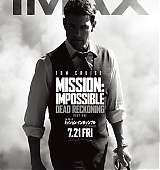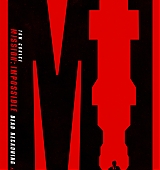July 29, 2007 — Tom Cruise’s United Artists movie studio and investment bank Merrill Lynch have essentially wrapped up negotiations over roughly $500 million in film financing, The Post has learned.
Metro-Goldwyn-Mayer, which owns UA, and Merrill are combing through final deal points and should be ready to go public with the financing by mid-August, according to four sources involved with or close to the deal.
Around Hollywood, however, the actor and his producing partner, Paula Wagner, are already on cruise control, making the rounds and being very open while taking meetings and closing deals as if the money was securely in place, one source added.
“They are really out there talking to producers, directors and actors at a level like never before,” this source said.
The appetite for film-financing deals among investors has curbed considerably since MGM and Merrill first entered into talks about a deal and, as a result, sources said the bulk of the equity in the UA financing is being put up by MGM.
The equity component is considered the riskiest part in film-financing deals since the senior and mezzanine debt, as well as any other obligations, get repaid before the equity partner does.
Consider that the equity investors in the Gun Hill I and Gun Hill II deals with Universal Studios and Sony Pictures were completely wiped out, one source noted.
That MGM had to put up equity to get the deal done speaks to the poor returns the money guys have been reaping from these deals, sources said. After all, the idea behind a film-financing deal is to diversify risk away from the studio.
MGM has publicly stated that it would fund UA until the label got its own bank and credit lines and became a standalone company. And while finalizing the deal with Merrill will go a long way toward establishing UA’s independence, getting access to the entire $500 million will depend on the performance of the films Cruise and Wagner produce.
According to one film-financing source who passed on investing in the Merrill-UA deal, about $300 million of the package is comprised of a revolving senior debt facility, which means that access to the entire amount is dependent on how well the movies perform.
If, for instance, UA’s first few movies bomb, then bank covenants could be tripped that would prevent further borrowing from the senior debt facility until the amount already withdrawn was repaid, sources said. (NY Post)































Comments are closed.